Horticultural Revolution: The 4-Step Regenerative Strategy for Tired Soils
Revolution in Horticulture: The 4-Step Strategy to Increase Productivity in Tired Soils
The New Paradigm of Regenerative Agriculture: Starting Well Is Half the Battle
Modern horticulture faces unprecedented challenges. Soils depleted by decades of intensive monoculture, unpredictable climate change, pressure to reduce chemical residues, and constant demands for higher profitability. In this context, the old saying “well begun is half done” takes on fundamental strategic relevance.
The reality of the sector? Traditional systems are no longer enough. Growers need solutions that not only maintain productivity but sustainably increase it, while simultaneously restoring soil health and preparing the business for the future.
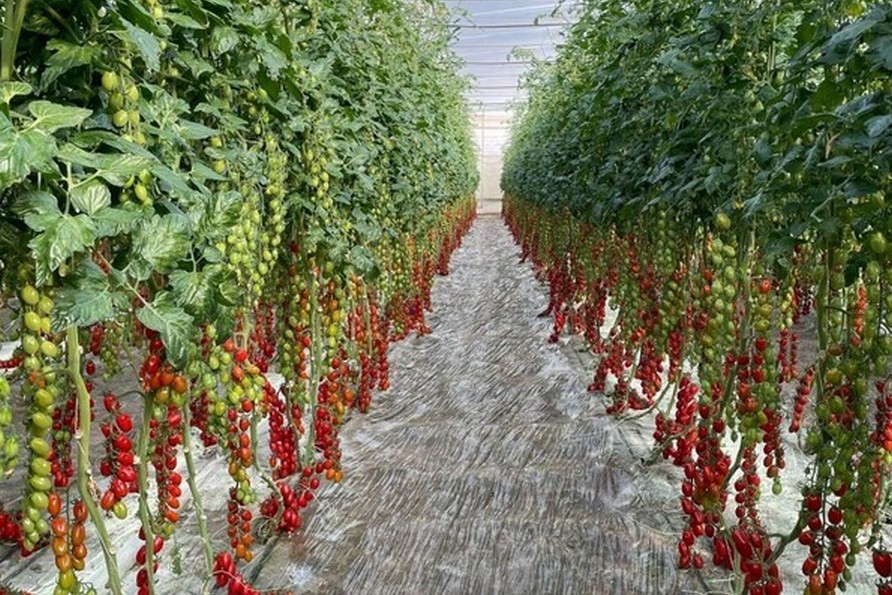
Why Traditional Horticulture Is Reaching Its Limit
The Problem of Tired Soils
In greenhouses with years of intensive production, soil progressively loses its regenerative capacity. Beneficial microbiology decreases, pathogens accumulate, and the physical structure deteriorates. This exhaustion directly results in:
-
Lower nutrient absorption by plants
-
Greater susceptibility to root diseases
-
Increased input costs to maintain yields
-
Gradual reduction in productivity year after year
The Pressure of the Modern Market
Today’s consumers demand products with zero or minimal chemical residues, while growers face ever-tighter margins. This equation can only be solved with strategies that maximize the natural efficiency of crops.
The Agriges Revolution: Technology Applied to a Regenerative and Sustainable Approach
Faced with these challenges, Agriges presents a comprehensive strategy based on applied science and regenerative technology. It’s not about isolated products, but an integrated management system that transforms productivity from the very first phase of cultivation.
The Pillars of the Integrated Strategy
-
Restoration of the soil ecosystem
-
Optimization of crop establishment
-
Maximization of physiological response
-
Sustained productivity under stress
Step 1: Rycyneem – Preparing the Soil of the Future
The Pre-Transplanting Revolution
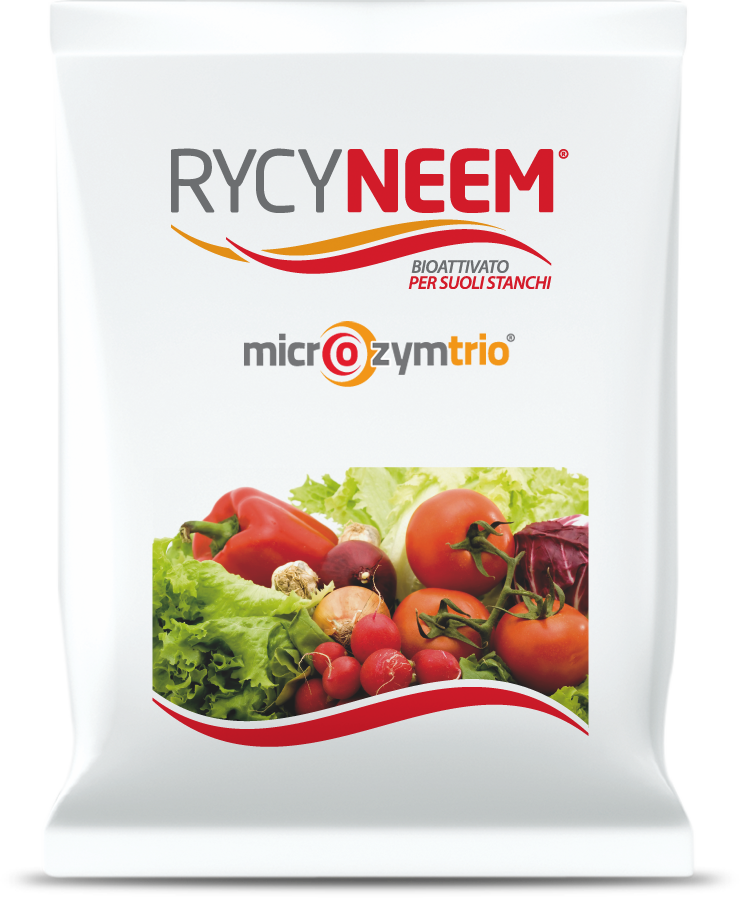 Rycyneem represents the evolution of soil preparation. Its MycrozymTrio technology incorporates exclusive thermoresistant bacterial strains (Thermoactinomyces spp., Streptomyces spp. and Bacillus spp.) that create a localized "hot spot" effect.
Rycyneem represents the evolution of soil preparation. Its MycrozymTrio technology incorporates exclusive thermoresistant bacterial strains (Thermoactinomyces spp., Streptomyces spp. and Bacillus spp.) that create a localized "hot spot" effect.
How Does the Technology Work?
-
Accelerated mineralization: Rapidly decomposes selected Brassica plant material
-
pH optimization: Reduces soil alkalinity
-
Beneficial colonization: PGPR microorganisms establish a vital rhizosphere before transplanting
Field-Proven Results
A rigorous trial conducted on tomato (var. Livanti) showed extraordinary outcomes:
-
60% fewer transplant failures
-
+100 tons per hectare vs. 99 t/ha in the control
-
+10% increase in marketable yield
Step 2: Ryzoclean – Excellence in Root Bioactivation
Strengthening the Absorption System
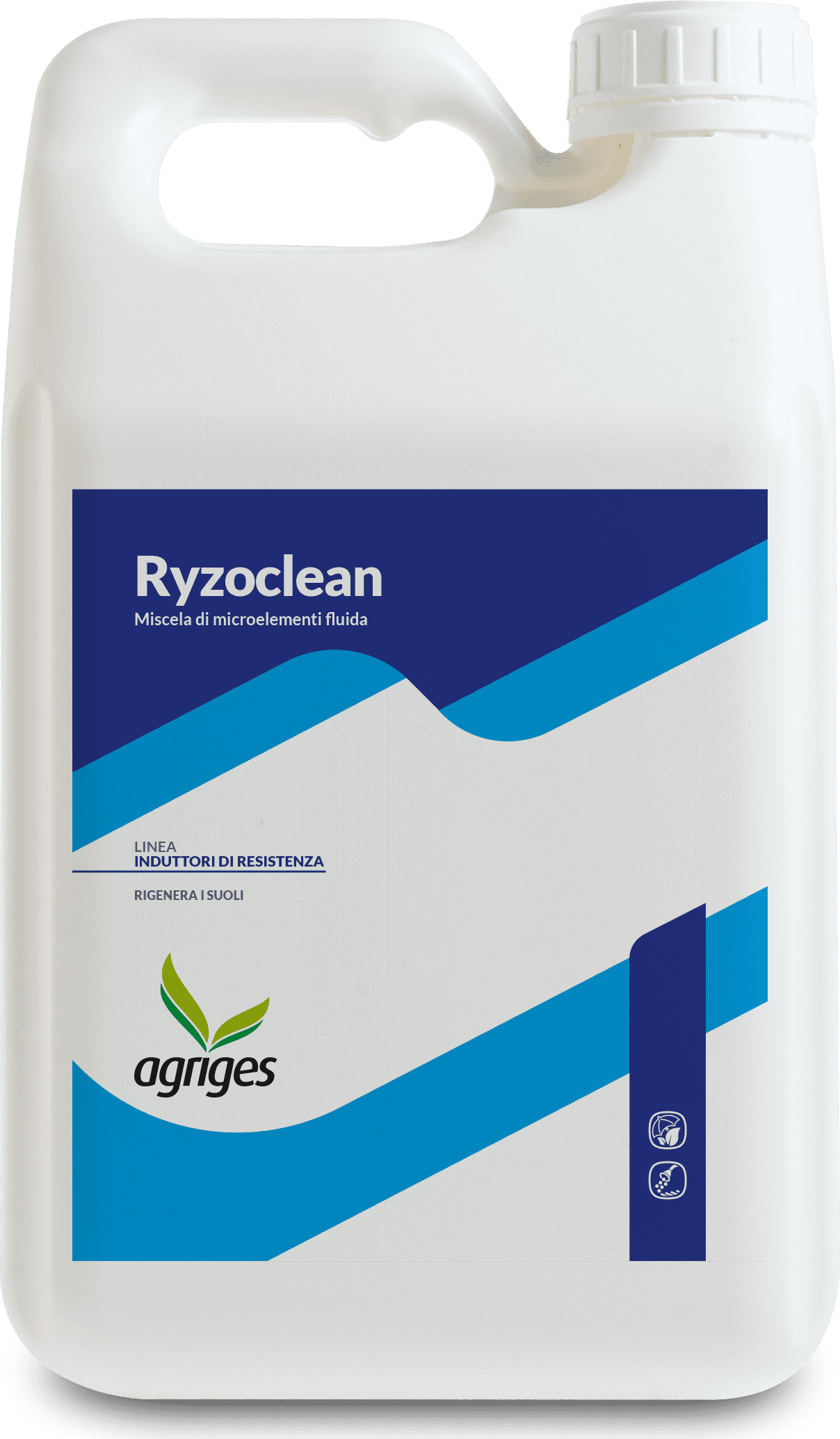 Once the soil is revitalized, Ryzoclean acts as a catalyst for root development. Its unique formulation combines:
Once the soil is revitalized, Ryzoclean acts as a catalyst for root development. Its unique formulation combines:
-
Multiple types of tannins for natural protection
-
Inactivated yeast (Saccharomyces cerevisiae)
-
Specific meso and microelements
This synergy results in a strong, healthy root system capable of effectively absorbing water and nutrients while activating the crop’s natural resistance.
Step 3: Draks – Overcoming Transplant Stress
The Key to “First Come, First Served”
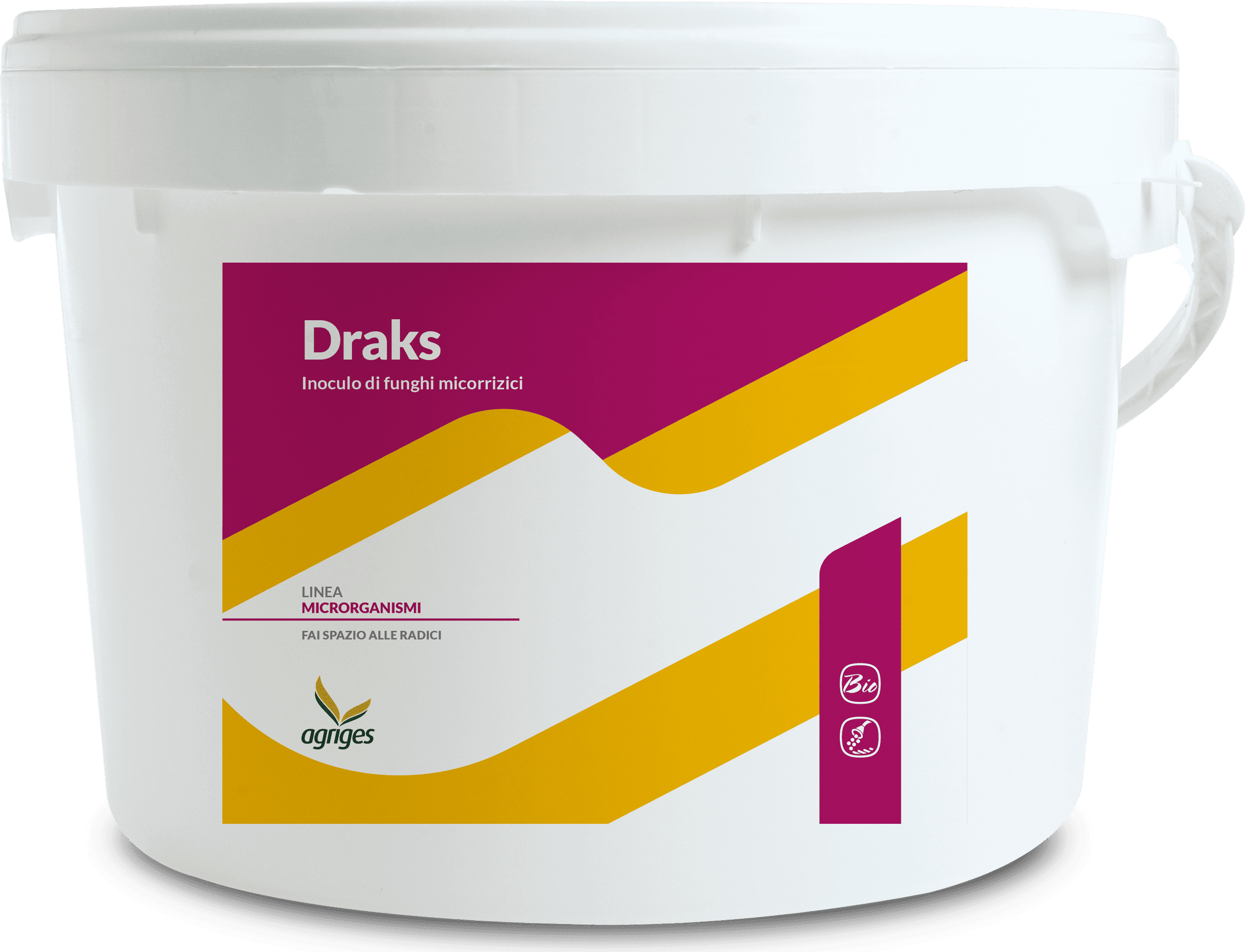 Transplanting is the most critical phase of the crop cycle. Draks turns this challenge into a competitive advantage through:
Transplanting is the most critical phase of the crop cycle. Draks turns this challenge into a competitive advantage through:
- Advanced Microbial Technology
-
Azotobacter chroococcum LS132: Atmospheric nitrogen fixation
-
Azospirillum brasilense AGS608: Auxin production for growth
-
Glomus spp. mycorrhizae: Expansion of root exploration area
Outstanding Results in Melon
A commercial-scale trial in Greece (var. Niovi) revealed the transformational power of Draks:
-
+60% early productivity in the first harvest
-
+10% total accumulated yield over the full cycle
-
Earlier market entry, when prices are highest
Step 4: Nema 300 Plus – Securing the Harvest
Stress Resistance, Maximum Productivity
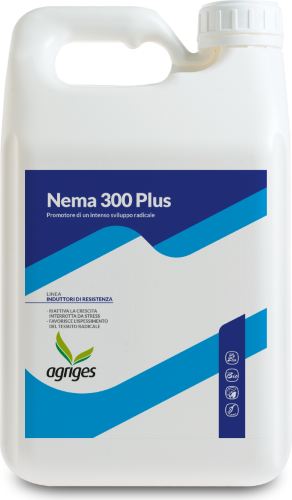 The exclusive formulation of Nema 300 Plus, with specialized fatty acids, represents the culmination of the integrated strategy. Its multifunctional action:
The exclusive formulation of Nema 300 Plus, with specialized fatty acids, represents the culmination of the integrated strategy. Its multifunctional action:
-
Moisturizing effect on roots
-
Greater resistance to drought and salinity
-
Physiological support during flowering and fruiting
Success Case in Zucchini
A comprehensive trial in Battipaglia, Italy (var. Amorgos F1) demonstrated transformative results:
-
2.5 times more robust root system after 8 days
-
Around 1000% more fruits per plant (18 vs. 2 fruits)
-
+90 tons per hectare vs. 22 t/ha in the control
-
+300% yield increase redefining profitability
The Competitive Advantage: More Than Products, a System
Proven in the Field
The documented gains speak for themselves:
-
10% with Rycyneem in marketable yield
-
60% with Draks in early productivity
-
+300% with Nema 300 Plus in total yield
Holistic Benefits of the System
-
Economic: Substantial increases in productivity and quality
-
Environmental: Reduced dependency on chemical inputs
-
Operational: Greater uniformity and predictability in harvests
-
Strategic: Preparedness for stricter future regulations
Practical Implementation: From Theory to the Field
Recommended Application Protocol
-
Before transplanting: Apply Rycyneem
-
At transplant: Incorporate Ryzoclean into the substrate
-
BBCH 10 (post-transplant): Fertigation with Draks
-
Critical growth stages: Strategic applications of Nema 300 Plus
Compatibility and Flexibility
The Agriges strategy seamlessly integrates with:
-
Existing nutritional plans
-
Conventional fertigation systems
-
Integrated pest management protocols
-
Organic and sustainable certifications
The Future of Horticulture Is Now
The Agriges proposal is not only technical—it is a business vision that anticipates market demands:
-
Products with a lower chemical footprint
-
Regenerative systems that improve year after year
-
Input efficiency that reduces operating costs
-
Resilience in the face of climate change
The Strategic Decision
Choosing Agriges’ integrated strategy means:
-
An investment in the future of the horticultural business
-
A competitive position in demanding markets
-
A commitment to sustainability without sacrificing profitability
-
A pledge to innovation that turns challenges into opportunities
When to Act? The Time Is Now
In a sector where margins are tightening and demands are increasing, the difference between success and mere survival lies in the strategic decisions we make today. Agriges’ integrated strategy is not just a superior technical option—it is the definitive answer to the challenges of modern horticulture.
The numbers don’t lie: the recorded increases in productivity are no coincidence. They are the result of applied science, innovation, and strategic vision.
If you have any questions or need further information, our team is always ready to assist you. Contact us on our social media and continue following us to stay updated on the latest news about organic and integrated agriculture!



